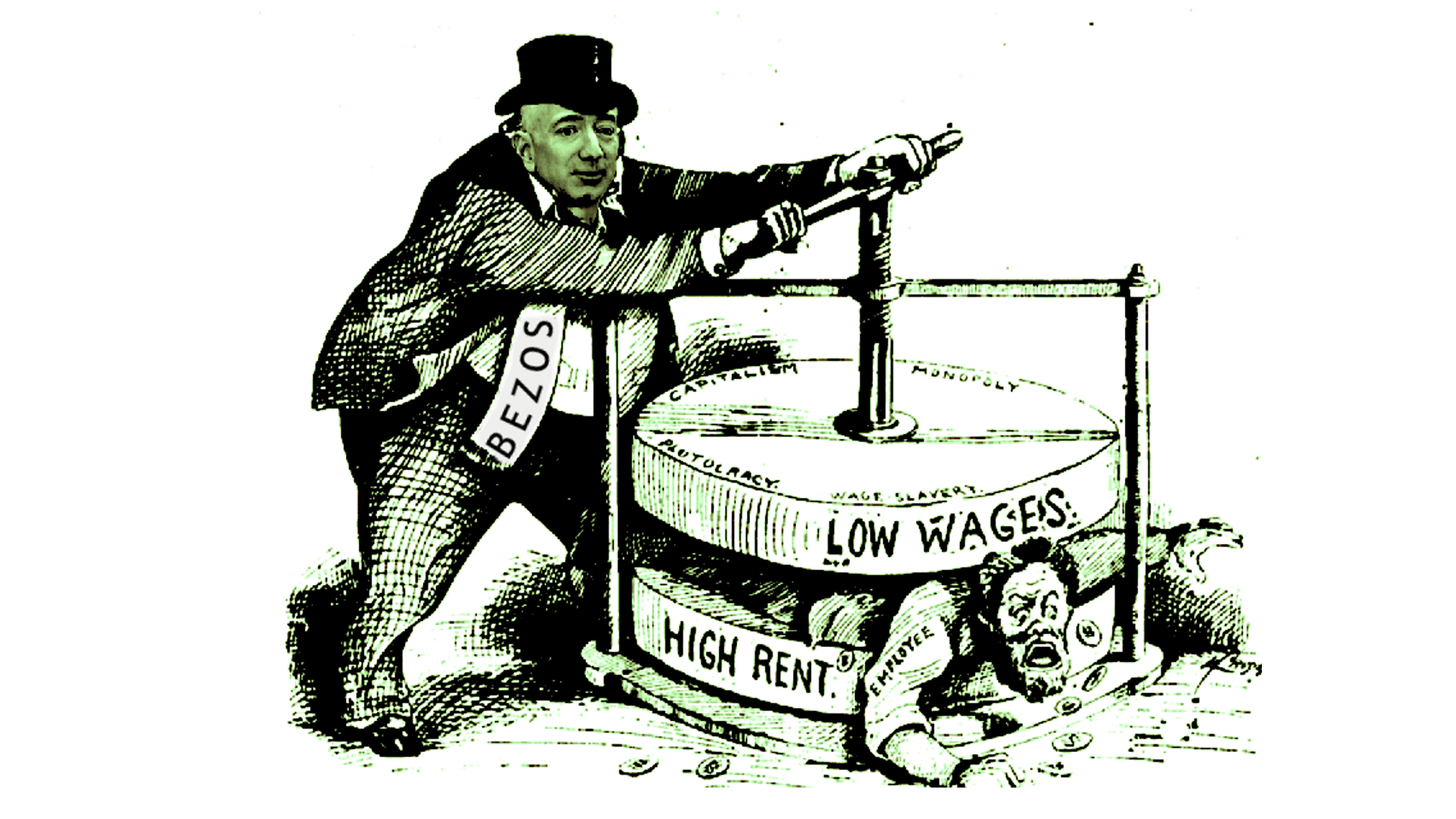When Fast Company asked him in 2001 to name his three favorite books, Jeff Bezos responded:
My favorite novel is The Remains of the Day. My favorite business book is Built to Last. Let’s see … three books.
Well, my favorite movie is Dr. Strangelove. I’m a huge Peter Sellers fan. And I think Mike Myers is the new Peter Sellers. I think he’s fantastic.
How about nonfiction narrative? Or biography?
Nonfiction narrative, let’s see. Hmm. I’m a big science-fiction fan. I love Dune. That’s not a nonfiction narrative, of course, but it would be cool if it was! (laughing)
Amazon controls more than half of retail book sales in the US, but its chief executive is not a literary man. Other than Dune and a few other science-fiction classics, Bezos appears to have mentioned only one non-business book he liked in the 27 years since he founded his company.
 Screenshot: YouTube
Screenshot: YouTubeThe Remains of the Day is an irreproachable work of literary fiction published in 1989 by the Nobel-prizewinning British novelist Kazuo Ishiguro. It’s a sentimental anti-Nazi romance, written with real feeling and in beautiful, old-fashioned prose. The universality of its protagonist, the butler Stevens (played by Anthony Hopkins in the 1993 movie, opposite Emma Thompson) lent a soft focus to the glaring class questions necessarily posed by a tale that hinges on a gentle servant’s unwavering loyalty to his dumbass fascist-sympathizing master. Otherwise the politics is inoffensively set in 1930s England, when everybody knew who the bad guys were (Nazis).
I mention this because the recommendation of a single decent middlebrow novel in 27 years, like a sort of placeholder or avatar for the literary sensitivity a man in his position might be expected to have, is indicative of the superficiality with which Bezos appears to treat his responsibilities to his employees, and to the culture, society and economy over which his company holds so much sway.
Earlier this month Bezos sent a letter to his 1.3 million employees. announcing that he will soon be stepping aside as CEO of Amazon, and it was dutifully reprinted by news organizations all over the world.
Think of all the things that might be said at such a moment, in the context of the year 2021, knowing that you have a chance to address quite literally billions of people. You might include an expression of sympathy for the tens of thousands of Amazon employees who have fallen ill with the coronavirus, a few words conveying grief for those who died, and condolences to their colleagues and families. Make a statement, maybe, drawing attention to the accelerating climate emergency you’ve said you wish to address. The words “thank you” would not have come amiss. And so many other things, none of which we will find here.

The Bezos prose style is a pure and fluent Silicon Valley Businese, the flat, jargon-stuffed argot seemingly designed to choke every vestige of human feeling or meaning out of the English language. The speaker of Businese is forever “excited” about “the future.” He doesn’t just change. Rather, he “transitions” and “focuses.” What does he focus?—”Energies.” Have you got narcolepsy yet? Good, because you better lie still until the pashas of Silicon Valley can stick the plug in the back of your skull and drown you in one of those Matrix pods.
Being greeted as a “Fellow Amazonian” by the big boss is likely to have been cold comfort to the Amazon warehouse worker, forced to perform like an automaton while being surveilled, harassed and abused, or be fired. Have to skip bathroom breaks or wait in a security line for 30 minutes after you’ve clocked out? That’s okay Fellow Amazonian, we’re all on the same team (unless you start organizing, moving goods at less than lightning speeds or taking too long to pee)!

Can the company that paid $62 million this month to settle claims that it stole tips from its delivery drivers, that is currently being sued for price-fixing, that has engaged in ruthless predatory pricing campaigns and cannibalized the incomes of its sellers, that retaliated against its own employees for organizing and for protesting unsafe conditions—can a ruthless tax-avoidance behemoth that has partnered with police in the secret use of surveillance technology really be considered “successful”? Based on what?
What “success” is, and who benefits from it or should benefit, are significant questions, but they go unanswered.

“Invention is the root of our success.” This is really so comical. Amazon has been denounced and criticized and sued to hell and back for copying and appropriating and just grabbing technologies and products and markets developed by others.

Corporations rarely “decide” on their own to start paying their employees better wages, or addressing the climate catastrophe. It’s workers, activists and organizers who really made that decision for Amazon.
As Edward Ongweso Jr., reported in Vice:
Amazon raised its minimum wage after months of attacks from politicians, including a bill introduced by Bernie Sanders named the Stop BEZOS Act that would force large employers to raise wages by taxing them if their workers relied on public welfare programs. Amazon’s venture capital Climate Pledge, along with its Earth Fund, are in response to organizing by workers in the Amazon Employees for Climate Justice—a group that still found the initiatives inadequate and full of half-measures.
Still, none of this answers the burning question: is Jeff Bezos having fun?

#yay
But… how does this man with a net worth of nearly $200 billion plan to help his employees lead lives that are more meaningful and fun, like his?


Bezos “invented” that tap dancing line as an homage, I guess, to fellow plutocrat Warren Buffett.

But Amazon’s employees aren’t free to “wander,” Jeff. No, not even to the bathroom. This “inspiring” advice is just a fakeout, a cipher, a fit farewell from the walking, squawking embodiment of the emptiness of greed.






